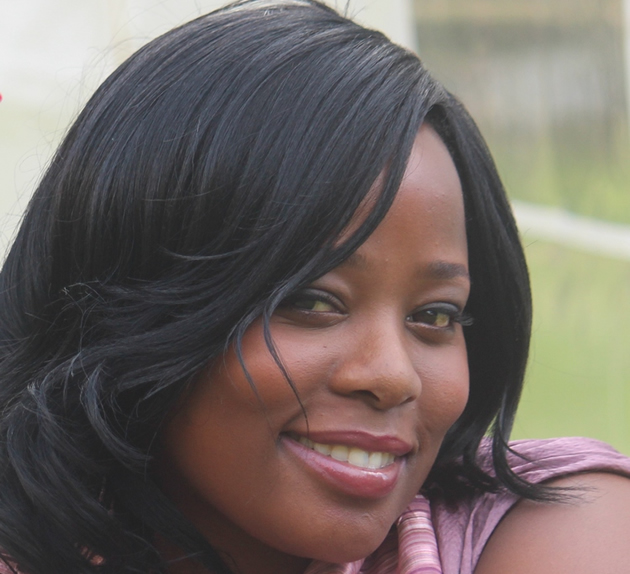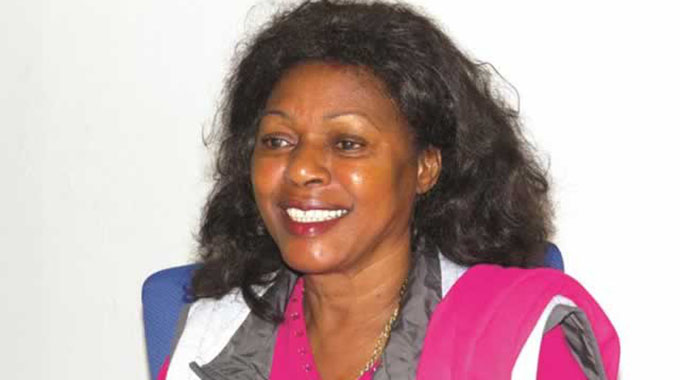Rudo: Genius behind innovation centre

When Rudo Nyangulu-Mungofa returned to Zimbabwe from abroad where she had been domiciled for more than a decade, she was amazed by the level of entrepreneurship that was going on around in all sectors of the economy.
She however, realised that several promising projects never lasted a mile, because individuals piloting the projects did not have good business models to grow their businesses.
Her passion to shape the future for some of these entrepreneurial initiatives resulted in the birth of Stimulus Innovation Centre, a social enterprise hub that focuses on building capacity in startup, micro, small and medium-sized enterprises.
“We assist in building dreams and shaping the future of entrepreneurship in Zimbabwe,” she revealed in an interview recently.
Established in Harare as a social enterprise in 2011, Stimulus Innovation Centre hosts a number of business coaching, mentoring and networking programmes, while creating business opportunities for the emerging entrepreneur.
“When I returned home some of my friends and colleagues had settled abroad.
“Those who remained behind were running different projects, but they were struggling to keep the businesses afloat,” she said.
It dawned on her that she could use the experience she acquired while working for an international organisation coupled with her background in law to create a platform for startups.
Once the platform had been set up, emerging entrepreneurs would regularly meet with established businesspeople and share ideas.
“It was an important opportunity that I could not miss. I needed to assist friends and Zimbabweans in general keen on entrepreneurship to realize their dreams,” she recalls
Armed with her savings and support from both her husband and parents, Rudo approached several restaurants that could house the social hubs, where participants could attend free networking clinics on different aspects of business.
“When I started Stimulus Innovation Centre, and because it wasn’t a traditional business, I had to let in people for free.
“Having heard of the concept, a lot of people started attending the sessions, but did not want to pay a dime for their personal growth and advice for their businesses,” she said.
Realising that the project needed to be sustainable, Rudo resolved to change the business model by turning the free networking sessions into business coaching classes.
That included setting up a membership system, where those keen on developing themselves alongside their business projects would need to subscribe to the centre, and participants had to pay a nominal fee to attend.
The decision signalled the robust growth of Stimulus Innovation Centre as a hub for business excellence through coaching, mentoring and networking sessions.
As the centre gained popularity, captains of business and industry and other prominent individuals would regularly drop in to host business sessions at the invitation of Rudo. The interactions stimulated debate among the growing entrepreneurial clientele that was keen on growing their businesses.
The team’s consistence in pushing the brand on the market resulted in Stimulus gaining recognition in both the public and private sector.
Some organisations even made long-term commitments to work with the centre on a number of business coaching clinics.
During the same period, Stimulus Innovation Centre had an opportunity to participate in the SIDA development programme, giving the centre a competitive edge to actively participate in the private sector, through private dialogues, research and advocacy.
SIDA also helped the Stimulus Innovation Centre develop its own business models; an area that had been lagging behind as the team was busy developing business plans for several organizations and individuals.
“Last year we were also able to participate in SNV Zimbabwe’s Leap+ programme which further developed our business model as an organization and in turn has strengthened our value position as an organisation,” she enthused.
Looking back at the project, Rudo is happy that she managed to turn her aspiration into a good enterprise, spawning successful entrepreneurs across social divide.
The centre will officially be launched on February 27 and the launch will coincide with their unveiling of the centre’s new civic engagement project #Ingage, which seeks to give opportunities for women and youth to use the centre’s space to learn about entrepreneurship.
As part of its efforts to grow, Stimulus Innovation Centre will also engage civic society and the public sector and work towards operational models that promote and improve services deliveries across.
“We now want to engage the public sector and establish how we can assist each other and even partner so that we can improve our well-being as a nation.”
With economists and businesspeople people predicting 2016 as a difficult year for the economy, Rudo is optimistic that the economic situation will improve.
However, she believes that what is needed is hard work and a change in the modus operandi.
She urged small to medium enterprises to create synergies with established businesses so that they can remain operational.
“Big companies stand to benefit by engaging emerging entrepreneurs in their businesses because they do not have huge overhead expenses and have very flexible terms, giving them a competitive edge against other businesses,” she said.
Rudo pointed out the importance of good business models, which she said were crucial for sustenance especially in tumultuous economic environments.
Rudo holds an LLB (Honours) degree and is also passionate about photography through which she started The Art of Being Humane Foundation to use audio visual media to communicate African stories.
She is also a Mandela Washington Fellow (2015).








Comments